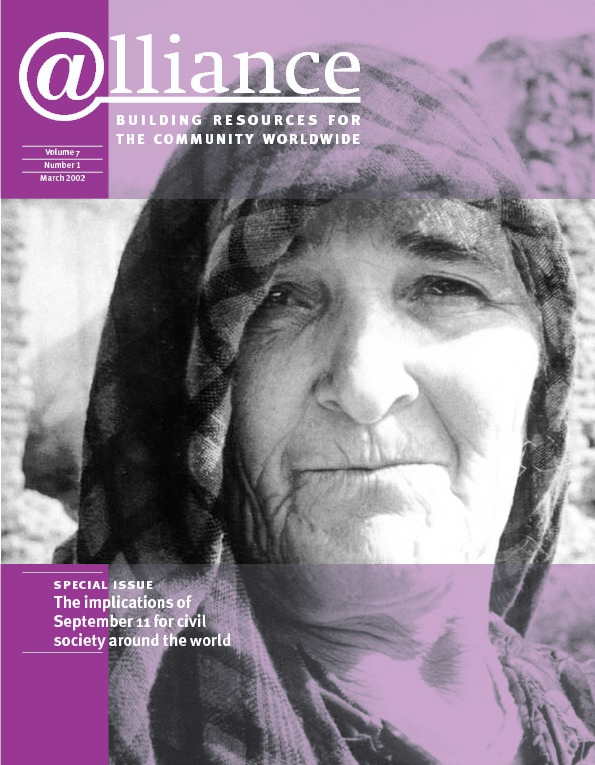The Ford Foundation has worked in Indonesia for nearly 50 years. The focus of its grantmaking in this predominantly Muslim country has evolved over the years in response to changing needs and priorities. Today, Ford’s has three overarching goals. One of these – to foster improved governance, social justice and respect for cultural variety – has assumed a new urgency since September 11.[1]
The underlying assumption is that the great diversity of Indonesia’s people and their culture is a source of strength and innovation. Yet ethnic and linguistic disparities remain large, and certain groups are significantly marginalized in terms of access to resources and participation in decisions that affect their lives. As the conflicts and civil unrest of recent times indicate, cultural identities – manifested in Indonesia’s wide range of geographic, religious, social and ethnic difference – often furnish the background for undermining national cohesion. Representation and participation in the nation’s civic and cultural life for all groups is thus an important priority for Ford’s grantees, as is improving understanding and appreciation of the country’s complexity.
With the fall of the Suharto regime in 1998, these priorities have assumed new significance. The country is undergoing dramatic political transition and social reform, while greater freedom of expression is enabling new voices to emerge. Since September 11, this work is all the more urgent. Many Indonesians were surprised at the emergence of a militant face of Islam that quickly gained prominence in the domestic and foreign press, particularly given the country’s long-standing reputation for religious tolerance and moderation. This has led many secular and religious leaders, including a number of Ford’s partners, to strengthen their commitment to social justice and understanding.
Islam as a tolerant
Many of Ford’s grantees work within a religious context in which Islam is interpreted as contemporary, progressive, liberal and even emancipatory – a tolerant religion that permits informed debate and critical thinking on fundamental social and religious issues. They also challenge a prominent belief that Islam is a complete and perfect system of teaching that leaves no problems unresolved and is therefore beyond reinterpretation. The fields in which they are involved range widely, from reproductive health to governance to arts and culture. Yet underlying their work is a common pluralistic, contextual understanding of Islamic principles.
Progressive Islamic thinkers who work through Ford grants in the field of humanities, for example, focus on the cultural vitality of Indonesia’s diverse population. In their view, the crucial right to artistic and other cultural expression is threatened today by religious hegemony and fundamentalism. The challenges they faced were heightened when extremist groups suddenly found they could capture media attention to promote their views after September 11, including a call for introduction of syariah or Islamic law. Ford’s Muslim colleagues responded quickly by convening religious seminars and public symposia to analyse the ramifications of imposing what, in their view, would be an intolerant social framework that would threaten the cultural rights of all Indonesians.
Ford also supports Muslim scholars and activists who work in the areas of gender, sexuality and reproductive health and rights. They are effectively challenging the authenticity of traditional religious texts that have been widely used, especially at the grassroots level, to justify gender and other forms of social inequality. Other Ford grantees, based in the national institutes of Islamic studies, endeavour to promote notions of good governance and civil society among traditional religious communities, mass-based Islamic organizations, and youth. Their analyses focus on themes such as the role of the state and the individual, pluralism, the rule of law, and the role of philanthropy in civil society.
None of this work is new. However, it is all the more critical today in the context of Indonesia’s fragile democratic reform process and the heightened international interest, in the wake of September 11, in the future of religion and politics in this vast country of 215 million people.
1 The others are to improve rural livelihoods through the sustainable management and development of natural resources; and to enhance women’s reproductive health, livelihoods and access to opportunities.
Suzanne E Siskel is Representative, Office for Indonesia, The Ford Foundation. She can be contacted at s.siskel@fordfound.org





Comments (0)